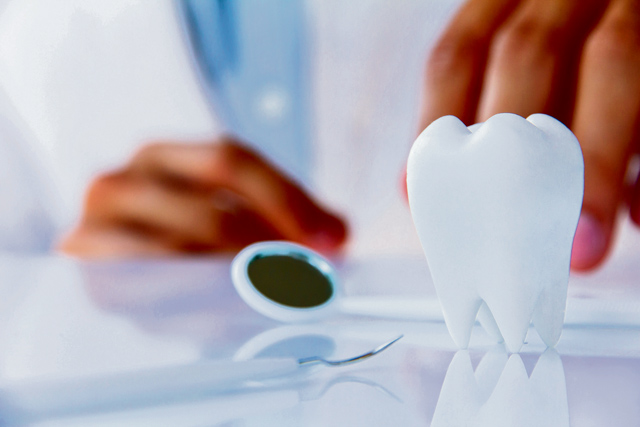
There are many reasons Ramstein personnel require dental treatment. It could be to fill a cavity, fix a chipped tooth or just have a routine checkup and cleaning. For the Airmen of the 86th Dental Squadron, there is no dental issue too big, which includes the lesser known issue, hormonal gingivitis.
Hormones are messengers secreted into the bloodstream, which carries them to organs and tissues of the body to exert their functions. There are many types of hormones that act on different aspects of the body such as development, growth, metabolism and even mood.
Did you know that hormones can also affect your mouth? Hormonal gingivitis is an inflammation of the gums caused by our response to hormones.
Hormonal gingivitis is the swelling of the gums associated with a hormonal imbalance during puberty, pregnancy, postmenopausal therapy and possibly associated with taking birth control medications. Symptoms can include gums that bleed when you brush, are dark red in color, tender or swollen. Hormonal gingivitis is considered reversible with proper care and regulation of hormones.
With the onset of puberty, hormone levels increase and, as a result, may enhance the possibility of gum disease. During menstruation, most women are not aware of changes, while others complain of gums that are red, tender, swollen and bleed easily. These symptoms usually improve once menstruation begins.
The most common time that women notice a change in their gums is during pregnancy. Hormonal and circulation changes during pregnancy often change the body’s response to tooth plaque and other irritants which may lead to an increased chance of gingivitis. Pregnancy gingivitis is prevalent in 60 to 75 percent of pregnant women, with most noticeable changes during the second month of pregnancy and peaking in the eighth month.
After a woman’s reproductive years, there is a 5- to 10-year period of menopause-related changes in hormone patterns. Consequently, changes in the oral environment may include an altered taste, a burning sensation, greater sensitivity to hot and cold and a decreased salivary flow.
Hormone regulating methods of birth control may also affect one’s oral health. Pay attention to how your gums react to birth control medications. If there is an increase in bleeding or pain, contact your primary care manager.
Hormonal gingivitis is common, manageable and preventable. The best strategy to combat hormonal gingivitis is practicing a good daily oral hygiene regiment. If you have any questions, concerns or would like more oral hygiene information, contact the Dental Clinic at 479-2210.


